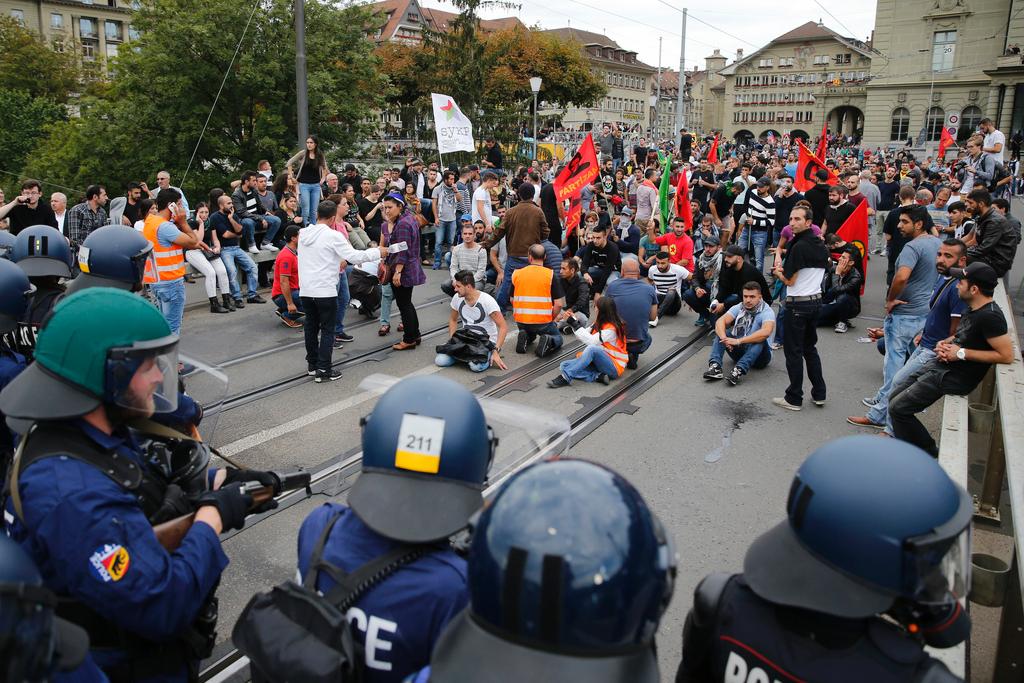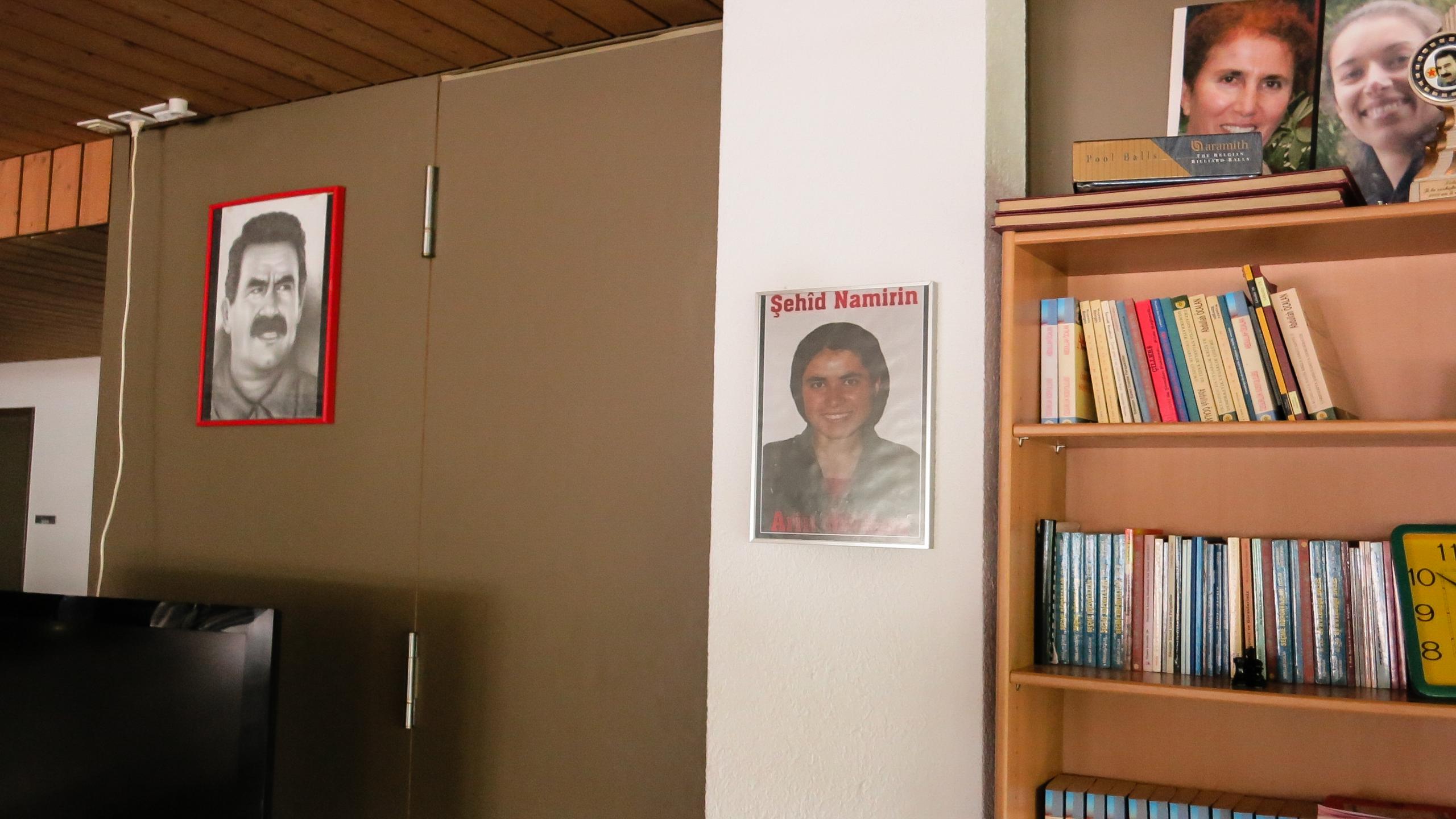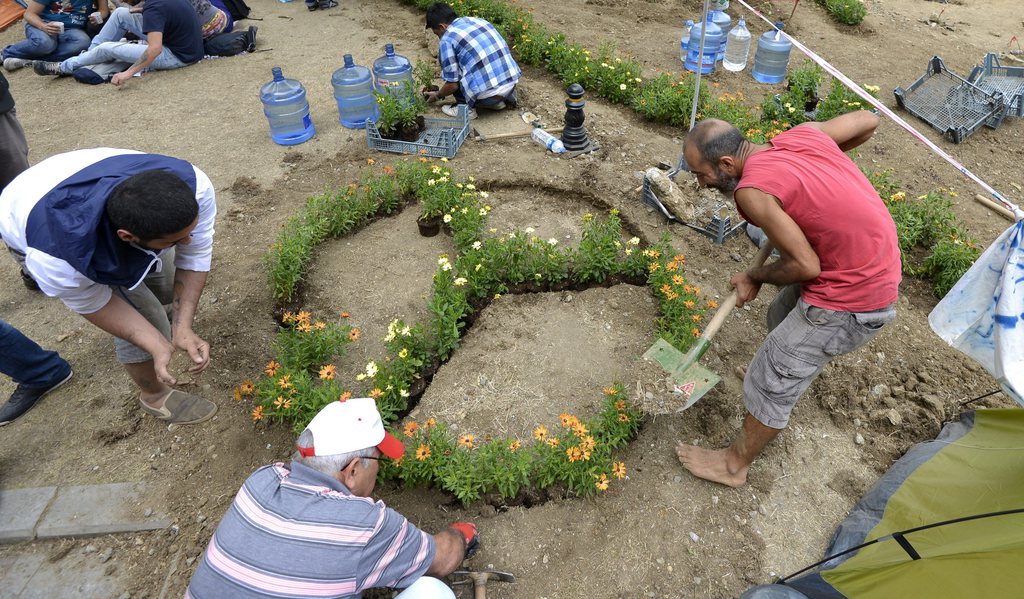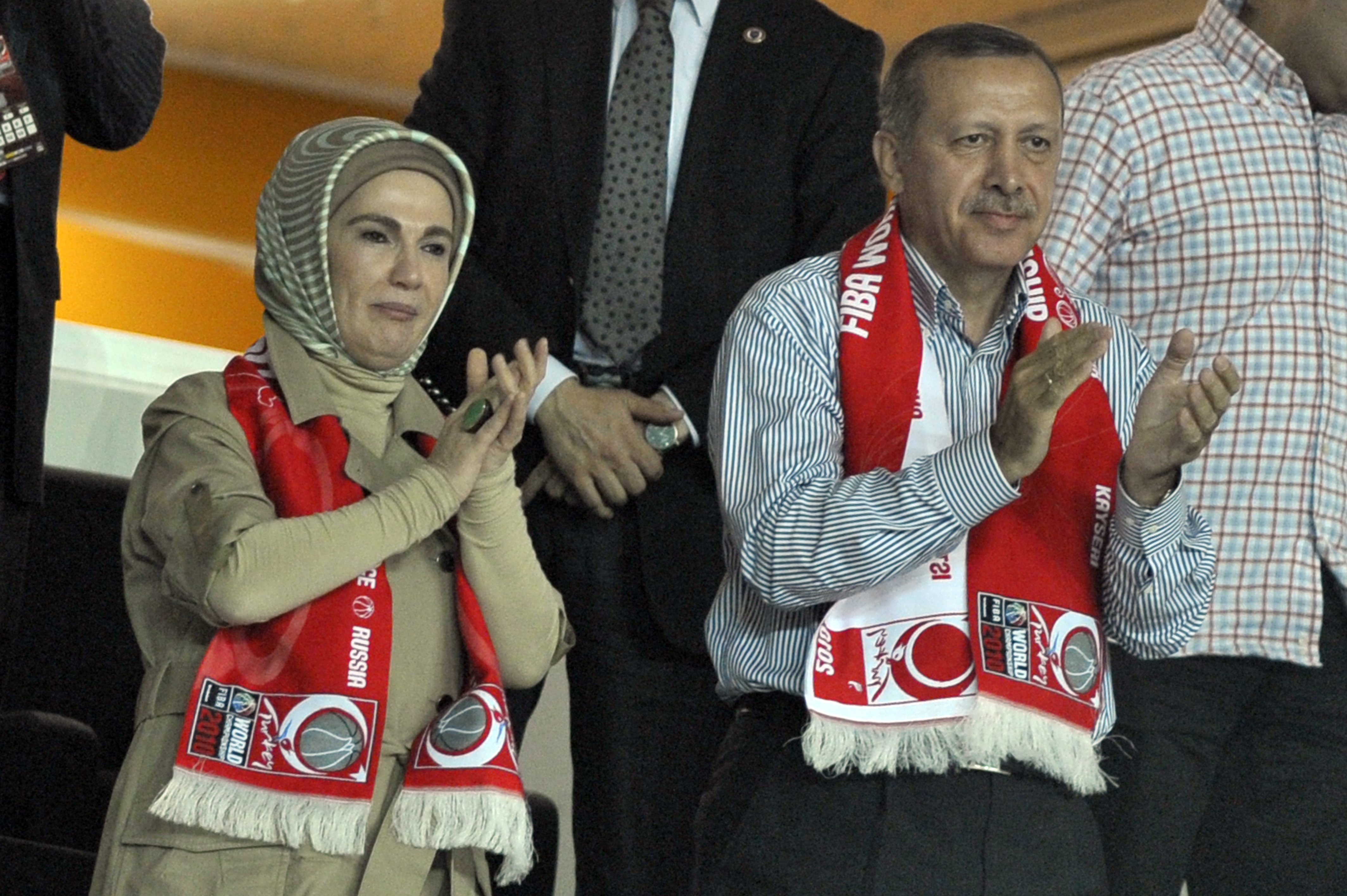PKK creates rift between Swiss Kurds and Turks

With around 120,000 residents of Turkish origin – about half of them Kurds – Switzerland has been affected by renewed violence between security forces and Kurds in Turkey.
Representatives of both sides in Switzerland say they live peacefully together – as long as there is no mention of the Kurdistan Workers’ Party (PKK).
“You are not going to write what I tell you anyway,” Turgut Dagci, a project manager for a Swiss engineering company, told swissinfo.ch. Apparently, the vice president of the “Turkish Community Switzerland”, who comes from eastern Turkey, has had bad experiences with the Swiss media. Swiss reporting, he says, is one-sided and to the disadvantage of the Turks. The latest example was the biased reporting on the riots in Bern, where several people were injured in September this year.
The agitations occurred during an authorised demonstration by the Union of European Turkish Democrats (UETD), a nationalist organisation close to Turkey’s ruling party, the AKP. The group’s demonstration in Bern was aimed at “any kind of terrorism”. In an effort to prevent the rally, Kurds and other sympathisers gathered at the same place, which led to a fight breaking out among several demonstrators, and some policemen being injured.
PKK – the bogeyman
“We don’t have a problem with the Kurds. They are our brothers and sisters. The violent demonstrators in Bern were not Kurds; they were from the PKK,” says Dagci, adding that he had participated in the UETD’s demonstration as he was opposed to any form of terrorism.
Dagci considers the PKK a terrorist organisation. Under President Recep Tayyip Erdogan, the Turkish government resumed its war against the party in Kurdish regions this summer, blaming it for several attacks on security forces and civilians.
“We are not friends of Erdogan but we are friends of Turkey – a peaceful Turkey,” says Dagci. “Our umbrella organisation consists of associations from all ethnic and religious groups.” However, not one single Kurdish group can be found amongst the members.
“Unfortunately not,” says Dagci. He claims to have sought dialogues with several Kurdish associations for various projects and events, such as a communications and job application seminar. “But the other side excludes us systematically,” he says. However, Dagci refuses to share who exactly he had desperately been trying to contact.
Heroes and martyrs
For most Kurds in Switzerland Erdogan isn’t merely “not a friend”; he’s an enemy who suppresses the minorities in his country. Risking life and limb fighting for Kurds’ rights, the PKK garners sympathy and support from Swiss Kurds.
Many adore Abdullah Öcalan, who is still considered the head of the PKK even though he has been serving a life-long prison sentence for bomb attacks, murder and founding a terrorist group since 1999. His portrait adorns flags raised during recurring Kurdish demonstrations, as well as the walls of Kurdish associations.

Some of the members of these associations have fought in the war of resistance in Turkey or were imprisoned on suspicion of participation. In addition, a large number of Swiss Kurds have parents, siblings, relatives or friends who were similarly involved.
What does the PKK symbolise to well-known Swiss Kurds? Are they resistance fighters against an unjust regime or a terrorist organisation?
Edibe Gölgeli, the young president of the Swiss-Kurdish Society in Basel, is also a member of Basel City’s cantonal parliament. She doesn’t want to comment on PKK involvement in her association. It is not part of her mandate “to make propaganda or anti-propaganda statements about the PKK,” she told swissinfo.ch.
Sibel Arslan, a newly elected member of the Swiss parliament with Kurdish roots, cancelled an interview appointment with swissinfo.ch on short notice. “Due to too many requests I am unable to provide you with any information,” she stated.
During her election campaign, Arslan publicly called for the Turkish government and the PKK leadership to stop attacks and resume peace negotiations. “The Turkish government’s air raids, which also go beyond its borders, as well as the PKK’s attack on security forces, spark even more violence,” she said.
“Terrorist groups” – but not illegal
According to the 2015 Federal Intelligence Service’s security report, published in February this year, the PKK is a “violent extremist and terrorist group, whose violent potential is still considerabe.” Unlike the United States or the EU, Switzerland does not consider the PKK an illegal organisation, such as “al-Qaeda” or the “Islamic State” (IS).
The report says that “connections to extreme left-wing groups from Turkey as well as to the Kurdistan Workers’ Party (PKK) still exist and situational mutual actions are still a possibility.”
Not much has changed since. “The PKK continues to recruit and launch fundraising campaigns in Switzerland,” the intelligence service told swissinfo.ch. However, it refused to comment on whether the “Festival for Kobane”, which took place at the Reitschule cultural centre in Bern on October 31, was part of this campaign. According to the Kurdish organisers, the event served as a fundraiser for the reconstruction of the Syrian town near the Turkish border. In 2014, IS terrorists took control of the region, surrounded the capital and destroyed several parts of the town. After months of fierce fighting, the Kurdish People’s Defence Unit (YPG), supported by US air raids, was finally able to remove IS fighters from Kobane.
The snap national elections held on November 1 saw the Justice and Development Party (AKP) do much better than expected. It won 317 of the 550 seats in parliament, only 13 short of the number needed for a national referendum on constitutional changes that would increase the executive powers of President Recep Tayyip Erdogan. The pro-Kurdish People’s Democratic Party (HDP) managed to win 59 seats, crossing the 10% threshold needed to claim seats.
In the previous elections in June, HDP achieved a surprising 13% of the vote, which ended the majority rule of the AKP. Erdogan refused to form a coalition with the HDP, calling for new elections instead.
The Federal Office of Police (Fedpol), which investigates serious crime (i.e. organised crime and financing terrorism), considers the People’s Defence Force (HPG) and the Kurdistan Freedom Falcons (TAK) – two of the PKK’s armed sub-organisations – as criminal organisations. Fedpol’s decision is based on a 2012 ruling whereby the Federal Criminal Court of Switzerland determined that these sub-organisations had undertaken terrorist activities and had also targeted civilians. The Federal Criminal Court’s decision did not specify whether the PKK as a whole was a criminal organisation under Swiss criminal law. This question had not been discussed in Switzerland’s other jurisdiction either, Fedpol told swissinfo.ch. The riots in Bern showed that the currently aggravating conflict in the Kurdish regions could also affect Switzerland. “There is a possibility that such violent riots will happen in Switzerland in the future,” said Fedpol.
Translated from German by Billi Bierling

In compliance with the JTI standards
More: SWI swissinfo.ch certified by the Journalism Trust Initiative











You can find an overview of ongoing debates with our journalists here . Please join us!
If you want to start a conversation about a topic raised in this article or want to report factual errors, email us at english@swissinfo.ch.